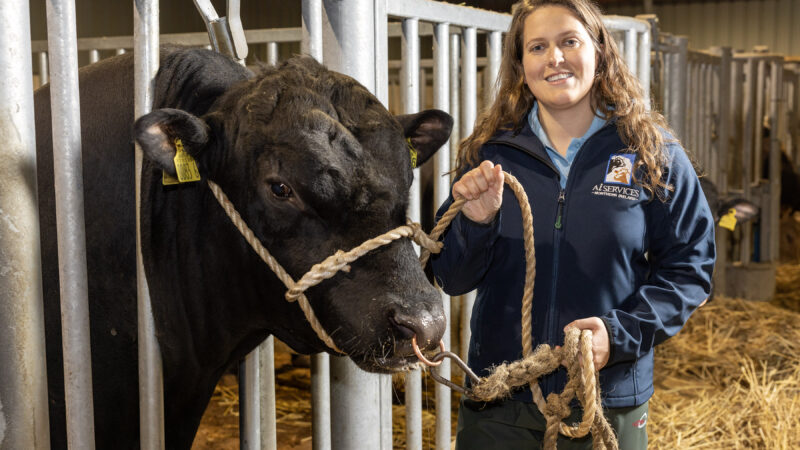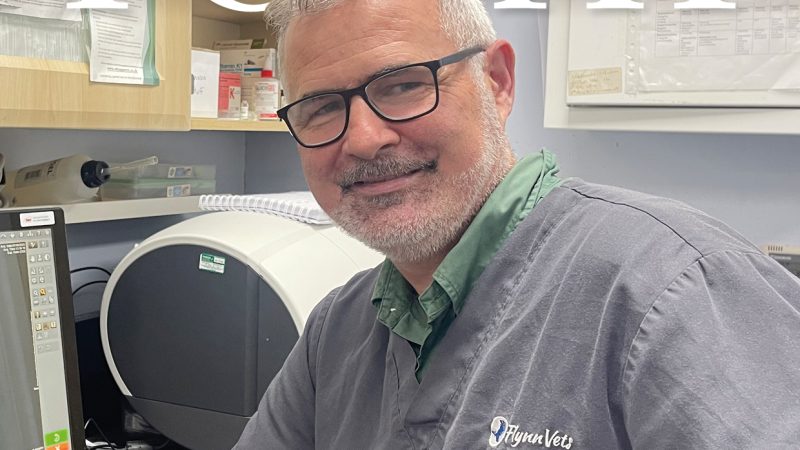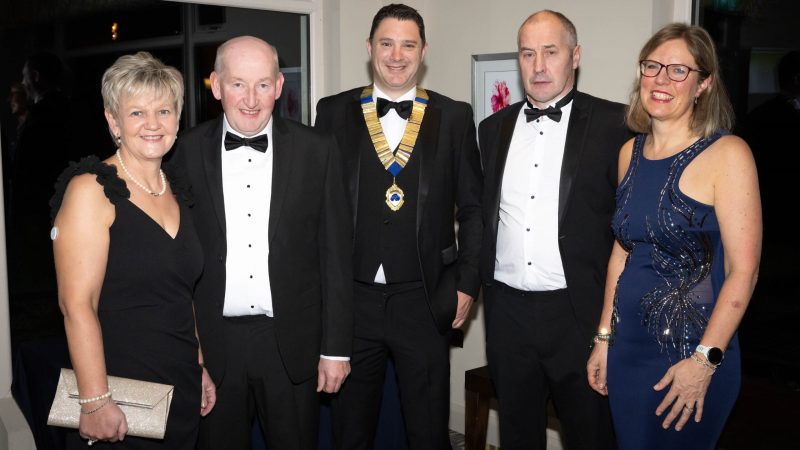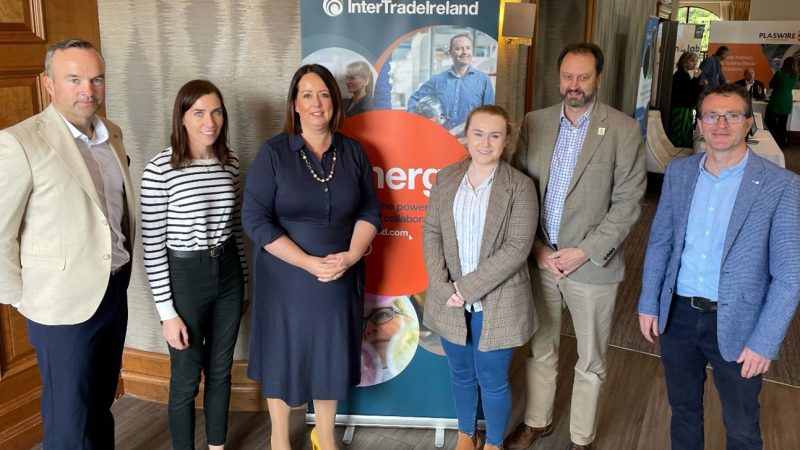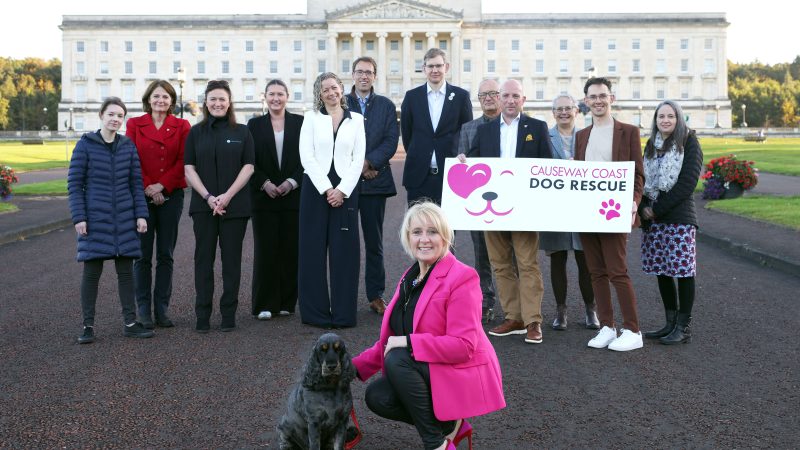Leading local vet takes honours
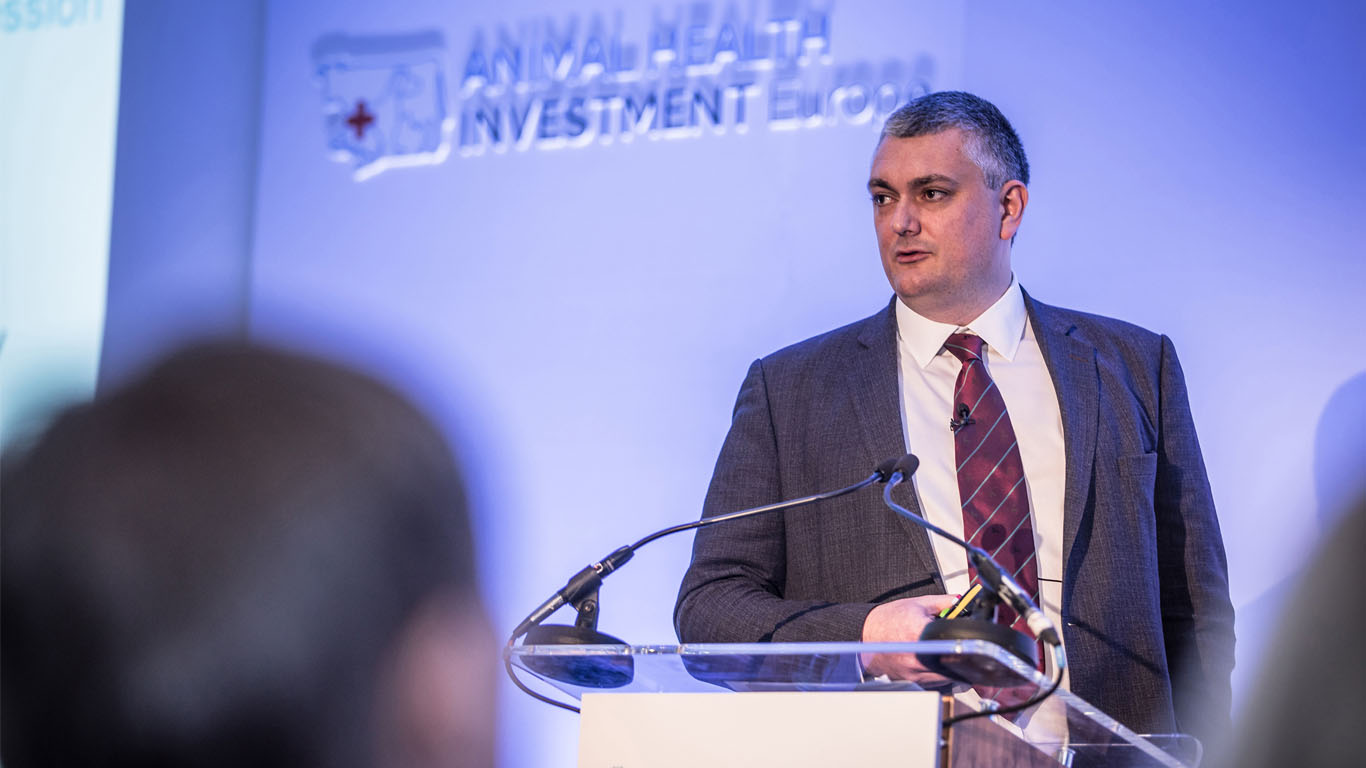
Former BVA president and NI vet, Simon Doherty, will shortly collect two of the UK’s most prestigious honorary titles in recognition of his service to the profession.
A leading figure in NI and GB veterinary circles has been awarded singular honours in recognition of his sustained contribution to the profession over many years.
Simon Doherty (45), the current senior vice-president of the British Veterinary Association (BVA) and a well-known face across the profession in Northern Ireland, has been awarded a Fellowship of the Royal College of Veterinary Surgeons (FRCVS) in recognition of his ‘meritorious contribution to the profession’.
At the same time, Simon has also been nominated for an Associateship of the Royal Agricultural Societies (ARAgS) in honour of his contribution to the farming sector.
It is 20 years ago this year since Simon qualified from the University of Glasgow and he says that with that in mind, both these new honours were perfectly timed:
‘It’s a wonderful thing to be recognised for the contribution that you’ve made and quite humbling at this stage in my career. Quite often, this type of recognition is reserved for people who been involved in this work for much longer than I have,’ Simon told NI Veterinary Today.
‘The most enjoyable part of what I do is working with colleagues and doing what I can to support them. This is a recognition of what I have given to the profession, but I couldn’t have done it without the support of a great many others,’ he added.
While Simon’s Fellowship will be conferred at this year’s virtual RCVS Fellowship event on October 1, his Associateship may not be conferred until next year’s Balmoral Show.
Most readers will know at least a little of Simon’s background, his diverse interests and his extensive efforts in veterinary research and politics. Early in his career, while he was working at Jubilee Veterinary Centre in his native Newtownards, he sustained a serious and lasting back injury.
The accident ended his long-held dream of a career in LA practice but undeterred, Simon set about carving a new niche for himself in the profession he loved. In the years since, he has had extensive involvement in research, particularly in the field of livestock vaccine design and since playing a pivotal role in the establishment of local veterinary secretariat, VetNI, in 2005, he has been deeply involved in veterinary politics and policy-making at local and UK level.
This culminated in his elevation last year to the presidency of the British Veterinary Association. During that time, Simon focused largely on themes of One Health, sustainability and animal welfare and has just helped to launch Vet Sustain, a community organisation dedicated to supporting vets and their teams as advocates for better sustainability in animal and human health.
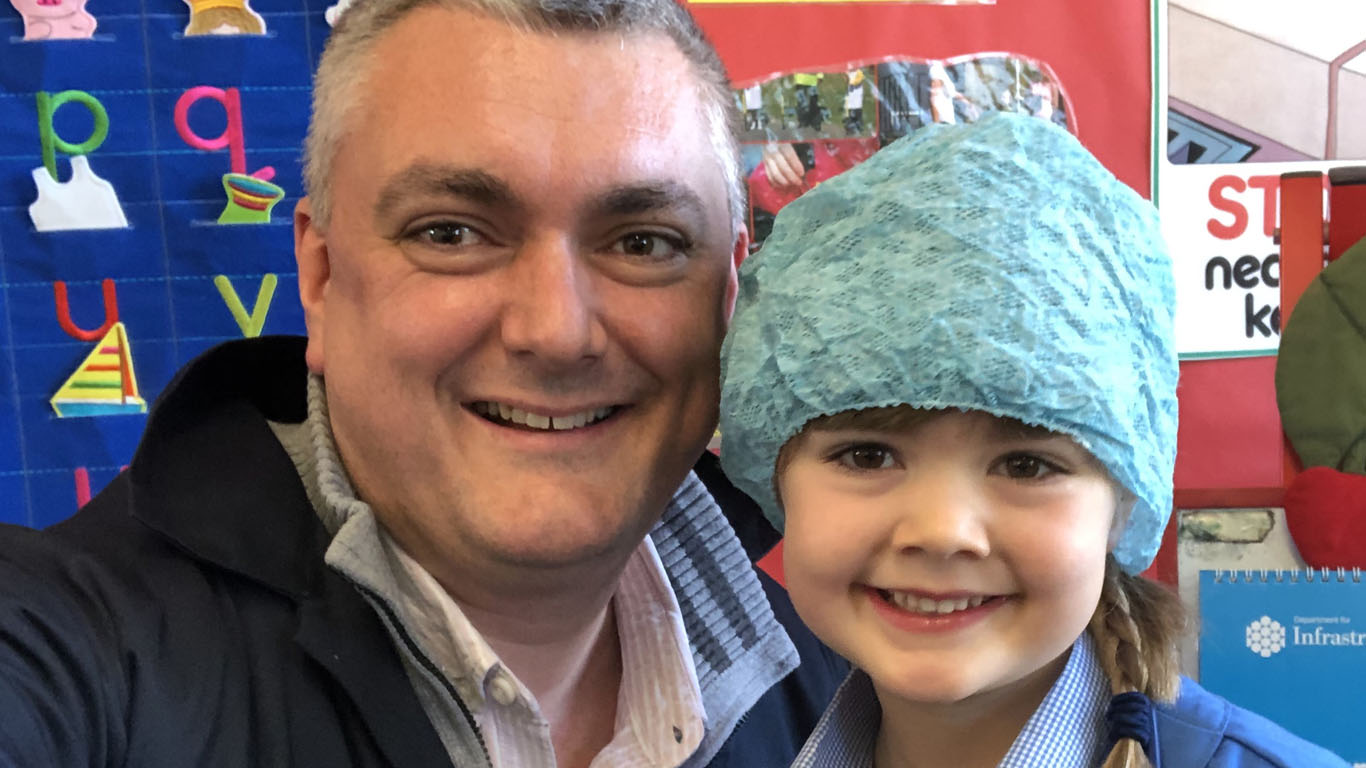
Simon has also led the BVA’s work to formulate a significant Welfare at Slaughter policy document, which was published in August. In turn, that work led to an invitation for him to advise the All-Party Parliamentary Group for Animal Welfare, chaired by Lord Trees, which published its report on the provision of small abattoirs in June.
Much of his time as senior vice-president of the Association has been spent continuing the focus on sustainable animal agriculture as well as assisting current president, Daniella Dos Santos with the BVA’s extensive reaction to the Covid-19 pandemic. He also leads the BVA response on trade issues, particularly in relation to Brexit and has addressed select committees at Westminster on several occasions. His last day of evidence in parliament will be September 15, when he speaks to members of the Environment, Food and Rural Affairs Committee.
Going forward, much of Simon’s attention will now be on his increasing involvement with the world-leading Institute of Global Food Security (IGFS) at Queen’s University in Belfast, where he also lectures to undergraduates on animal health and welfare. Simon joined the Institute in 2018 following a three-year stint as animal sciences and aquaculture specialist at the UK government Department of International Trade.
The IGFS at Queen’s plays a major role in delivering safe, sustainable and authentic food to the world’s population and has become globally recognised for its excellence in research.
Simon says that he will ‘ramp up’ his work with the Institute in the coming months:
‘I am really excited to be heading into such an active and rapidly evolving body within the university that has literally been on my doorstep as I grew up in Belfast,’ he says.
The ASSET lab at the Institute has become the first university lab to be named a Centre of Expertise for Food Fraud and Food Safety by the UK government.
‘We talk about ‘farm to fork’ but for that process to be safe, then we have to remove fraud,’ Simon told NIVT. ‘At the Institute, we are looking at new techniques, things like blockchain technology, as a means of preventing food fraud and this isn’t just an NI thing or a UK thing, the reach of some of the work that the IGFS is doing is truly global and to have this centre of excellence here in Belfast is fantastic and a real strength for Northern Ireland where so much of our economy is based on agriculture and food production.’
Simon will continue his involvement with the UK’s One Health Coordination Group, which he helped establish and has chaired for the last three years. And he will remain as one of two BVA representatives at the Federation of Veterinarians of Europe, where he was made chair of the Food Safety and Sustainability Working Group in March.
On top of all that, he has a busy schedule of speaking commitments to attend to in the coming months although most of his engagements will be virtual. The first of these will be on September 9, when he addresses delegates at the Animal Microbiome Congress.
And his work with the charity Send a Cow will also continue. Simon sits on the board of Send a Cow, which helps smallholder farmers out of poverty in east Africa through the delivery of vocational training and the provision of livestock and seeds.
Simon says that while many months have lockdown have allowed him to spend much more time with his family at home, it’s been ‘a different kind of busy’:
‘I still manage to put the day in, usually with one Zoom call after another but it comes back to this concept of the new normal and one thing I have had to relearn is the importance of taking a break,’ he says. ‘The laptop is always there and it would be easy to sit and work from 9am until 9pm each day, but you just need to stop, sit in the garden or take the dog for a walk. If lockdown has been good for anything, it’s taught us how important these simple actions can be.’

